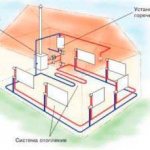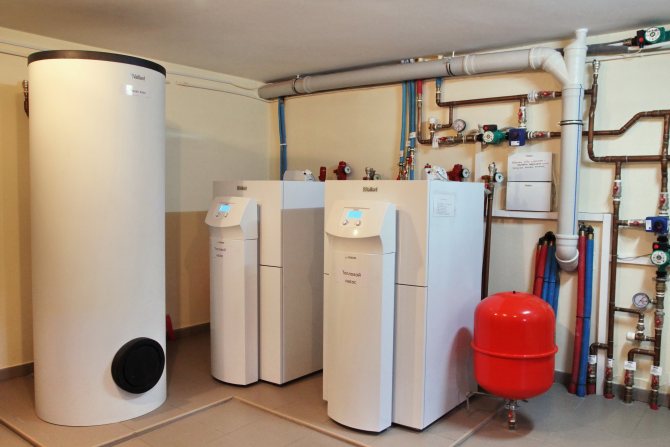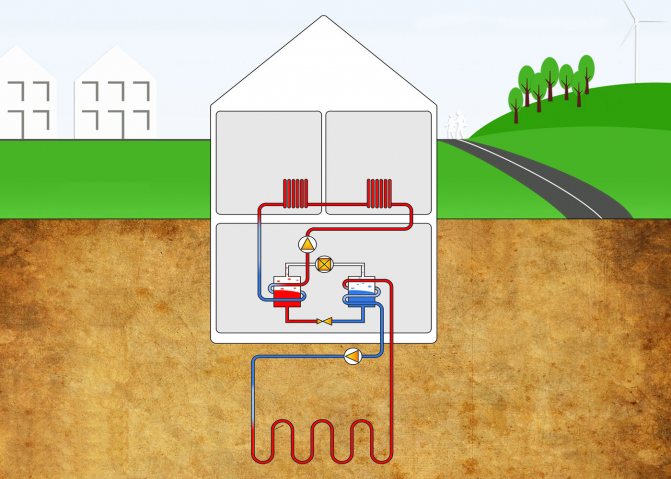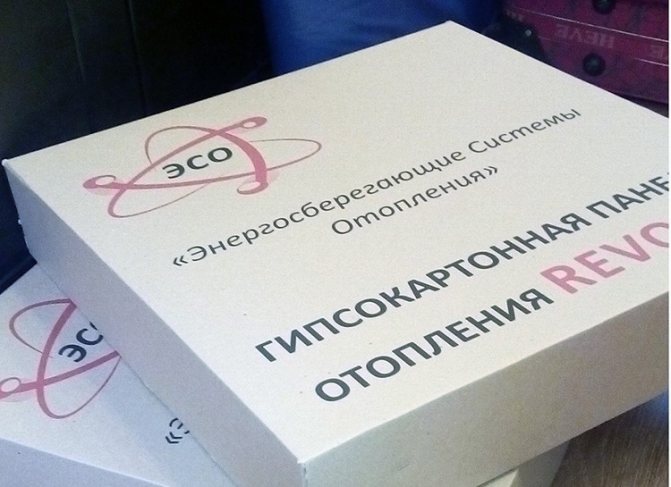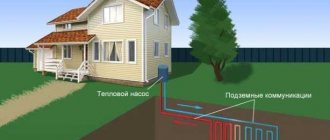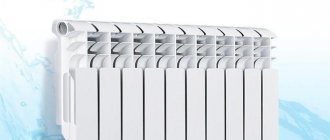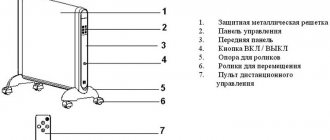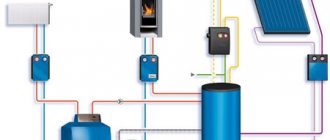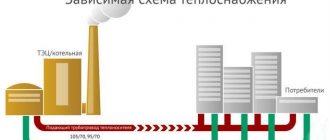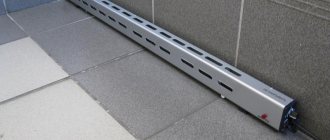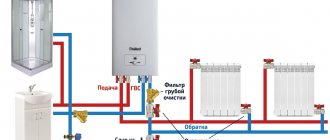Unfortunately, there is no exact "recipe" for creating coziness in the house and it is often not so easy to achieve a comfortable environment.
And this is not so much about a fashionable interior and modern furniture, but about a high-quality heating system, which is so important in our changeable climate.
The heating system of a private house is, in fact, considered its "heart". Without the appropriate equipment, any house will forever remain cold, uncomfortable and simply unsuitable for habitation.
If in the summer this problem is not so noticeable, then in winter frosts it interferes with living and enjoying your home pastime.
That is why you need to seriously think about this issue and think about heating a private house with your own hands.
What decisions will the owner of a private or country house face? First of all, it is necessary to highlight several main points of work:
- selection of reliable heating equipment;
- preparation of the location of the system;
- direct installation and connection of equipment.
You also need to determine whether to make the heating system the main one for the whole house or focus only on certain rooms and areas. This moment helps to avoid unnecessary costs and come to a reasonable choice of technology.
Experienced experts have always noted that a deliberate choice of a home heating system with their own hands for a home is the key to a comfortable stay in the house.
Indeed, in the process of organizing home heating with your own hands, every little thing is important: the accuracy of calculations, the correspondence of pipe sizes, radiator parameters, the quality of component parts, etc. It is they that can lead to an early failure of the system and new costs.
DIY home heating systems
The main criteria when choosing certain heating devices are considered to be their price category, quality, durability and, of course, technical characteristics.
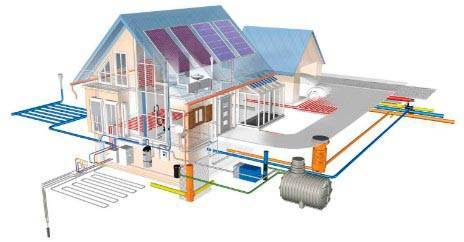
There are several main types of heating systems:
- powered by electricity;
- gas based;
- using water;
- air;
- geothermal or earth-based;
- from a stove or fireplace;
- underfloor heating system;
- use of portable mini-heaters.
As you can see, the main parameters here are the type of energy used and the type of heat carrier. They also differ in installation methods and in some set of accessories.
The center of the main home heating is the boiler, which sets the pace of the entire system. The complexity of installation work will depend on his choice.
When it is necessary to create comfort only in certain areas, mobile, that is, portable heaters, for example, fireplaces and radiators, will come in handy.
In country houses, the installation of a "Russian stove" or small fireplaces is considered a rather interesting moment. They create a unique coziness and appropriate atmosphere in the house.
Some of the heaters may serve solely for certain functions, such as heated towel rails or kitchen stoves. They are very useful in everyday life, but they cannot serve as a real heating system.
Otoplenie-pro.com
To maintain comfortable conditions and an optimal room temperature, it is important to select and connect the right heating system.
Autonomous systems will be especially appreciated by those who had to live in houses or apartments with centralized heating.Deterioration of equipment and pipes in centralized heating systems entails increased heat loss, as a result, subscribers do not receive the required amount of heat and use electric heaters. As a result - extra cash costs and hassle.
The choice of a heating system depends on many factors:
- the location of the house;
- remoteness from central communications;
- the area of the heated premises;
- Money.
For autonomous heating, these types of boilers are produced today:
- solid fuel;
- liquid fuel;
- gas;
- electrical;
- combined.
If the boiler does not provide for hot water supply, a water heater (boiler) is often purchased along with it, thanks to which hot water is supplied around the clock. There are separate requirements for the operation of boilers: you need to know the rules for caring for the unit and clean the tens in a timely manner. These requirements are described in detail in the articles on our website.
Of all modern types of heating systems, gas boilers are the most demanded and popular. Despite the growing prices for blue fuel, natural gas remains the cheapest (in comparison with electricity, pellets, etc.). Gas boilers are simple, reliable, durable and efficient in operation - this explains the increased consumer demand for gas equipment.
Thanks to the installation of a single-circuit gas boiler, you can independently regulate the beginning / end of the heating season and the temperature in the house, as well as save on electricity. Additional installation of the boiler will allow you to use hot water at any time.
The functions of gas boilers are not limited only to heating: when installing a double-circuit boiler, you will be provided not only with heat, but also with round-the-clock hot water supply (DHW) at the same time without installing additional equipment.
The indisputable advantages of gas boilers are:
- Full automation.
- Small size and functionality.
- Fuel availability.
- Cost savings.
- Minimal human involvement in the operation of the boiler.
Even for non-gasified areas there is a way out: to purchase blue fuel in cylinders. The cost of installing a gas heating system (and water supply) will pay off in 2-3 heating seasons. By giving preference to gas boilers, you lose one more problem - transportation and storage of fuel (compared to solid fuel units).
Read more about the types, location, functionality, design and installation features of various types of boilers in the articles on our website.
Diy home heating schemes
Heating systems may differ from each other in terms of performance or appearance, but their principle of operation in most cases is based on the following chain of actions:
- The special substance or heat carrier is heated in the boiler. The coolant can be different in terms of the state of aggregation and composition of substances: gas, steam or water, chemical reagents, etc.
- With the help of a sediment or with an established natural circulation system, the heated substance is distributed through pipes that lead directly to the radiators.
- The coolant gives off all the heat received to the walls of the radiator, after which it continues to move through the pipes towards the boiler.
- Returning to the starting point, the coolant heats up to certain temperatures and repeats the procedure from the very beginning.
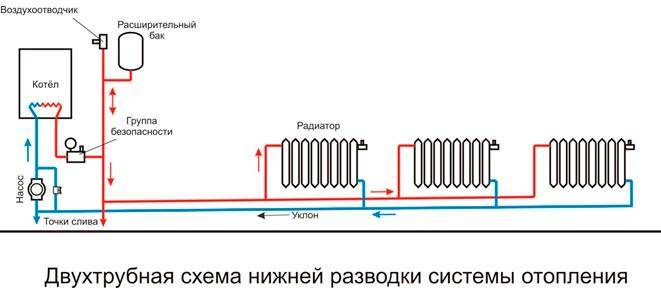

Water is considered the best coolant: it can be found in any home, it perfectly accumulates thermal energy and transfers it without hindrance, it is environmentally friendly and harmless.
In the event of a pipe rupture, it is much easier to collect excess moisture from the surface than a chemical reagent, which in addition can be hazardous to health.
With stoves and fireplaces, everything is much simpler: the fire inside the structure heats up the metal case, which in turn gives off all the heat to the air and surrounding surfaces (floor, walls, furniture, etc.), and the smoke freely goes out through the chimney.
It is enough to connect portable heaters to a power outlet and just after a couple of minutes bask in a comfortable environment.
Unfortunately, the range of such installations is quite small: literally a few meters, but this result is quite enough for many people.
How are CHP heating panels
Outwardly, these panels look like the simplest thin sheet of drywall 60 × 60 cm in size.But this simplicity is only external. Inside the gypsum sheet, there is a film made of a special polymer consisting of a carbon composite.
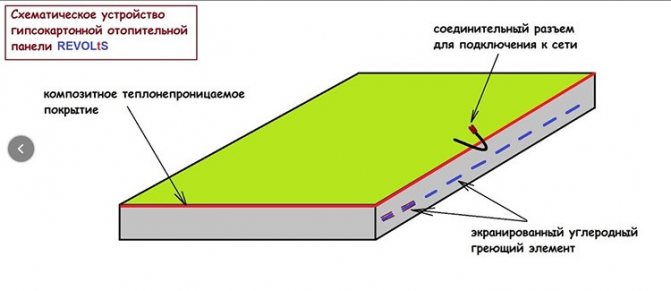

From the rear, the panel is protected by a heat-insulating layer, and is also equipped with a cord for connecting to the power supply
These panels can be safely used for wall and ceiling cladding, they can be combined into one common system. The plates are heated from the inside and emit infrared waves, while consuming 100 Wh to heat 1.5 m² of area. It is difficult to call this technology energy-saving in the literal sense. The carbon polymer film inside HPC batteries does not melt, oxidize or burn. The room temperature can be controlled with a simple device that is mounted separately from the panels on the wall.
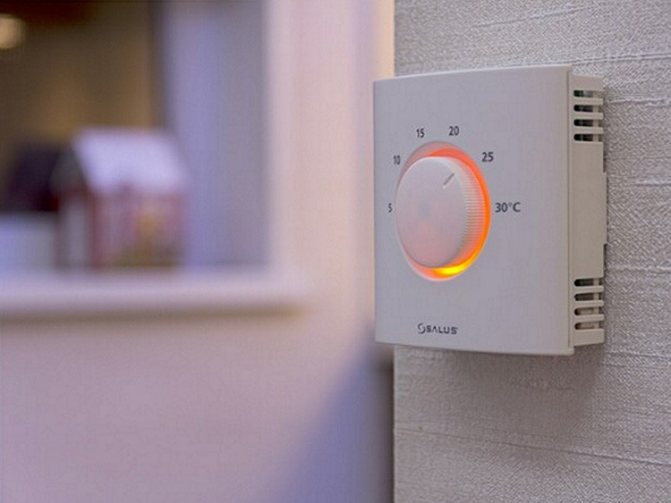

The control unit can turn the panels on and off at the time you need
Heating installation tips for beginners
Carrying out all stages of work with your own hands has always been considered a more economical solution than introducing the help of experienced specialists.
There are many examples when novice craftsmen installed a heating system in their home that could work without interruption. But at the same time, there are not so few cases when a person simply spent his time and money, but did not achieve the desired result.
If you are not confident in your abilities, invite specialists or get advice from a professional. In this case, the risk of system failure is minimized.
Before starting work, review all the options for existing heating systems and choose the best option for yourself.
A successful example of heating a private house with your own hands, a video of which you can clearly watch.
The latest technology and heating equipment at your service
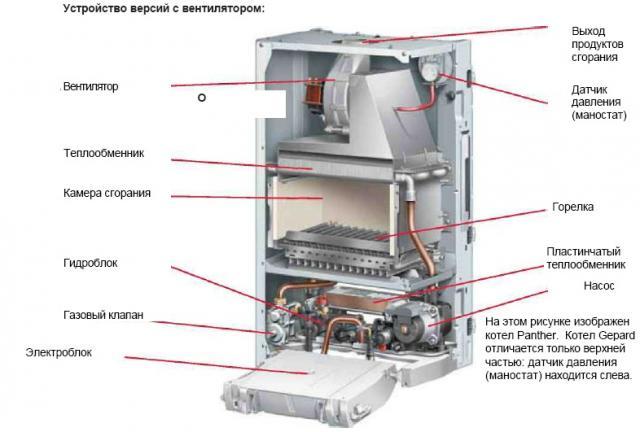

Diagram of a two-circuit heating system
With them, modern home heating can be arranged in such a way that you will control not only the amount of heat, but also its distribution in different rooms. This became possible thanks to a system of devices operating according to a planned algorithm. Moreover, they are easy to choose for a room of any size and purpose.
Thus, one type of heating system is designed specifically for cottages or small country houses, another for multi-storey buildings, and the third for huge urban areas. But, since you are interested in the installation of heating a country house or apartment, we dwelt in more detail on the consideration of these particular systems.
They differ in the type of coolant, the principle of operation and additional capabilities.
Water heating
During the operation of the water system, the fuel is converted by the boiler into heat, which heats the water, and it heats the elements of the heating circuit.
You will learn about the nuances of connection and operation:
- gas, electric and solid fuel boilers
- single and double-circuit units
- chimney and turbocharged structures
System elements


Hot water heating system
Hot water flows through pipes to the direct elements of the system, which heats the room. It can be:
- radiators
- warm floor
- heating coils
- boilers
- various heat exchangers
Radiators
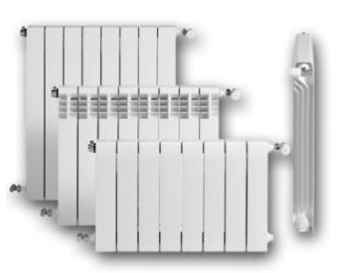

How to choose the right radiators?
Having given the largest part of the heat to the radiators, the cooled water returns to the boiler, where it heats up again. And the heating cycle is repeated. You will understand how to choose the right radiators, and which of them is better to stop at:
- on steel
- cast iron
- aluminum
- or bimetallic
You will learn which pipes are best to use, how to correctly calculate the required number, and by what rules to choose them.
Circulating pumps
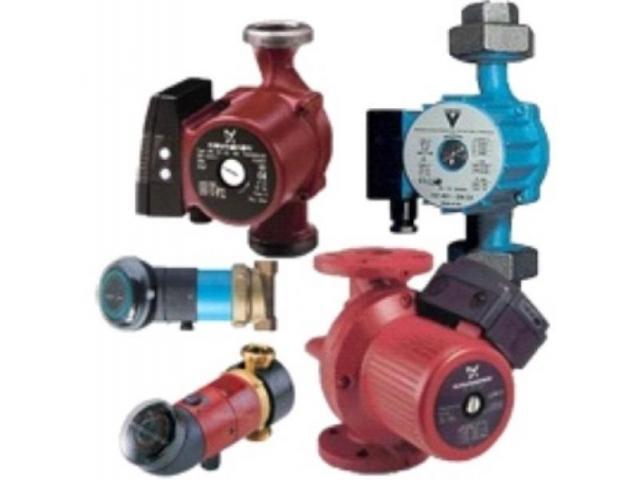

A pump that forcibly distills water throughout the heating circuit.
In modern heating systems, circulation pumps are widely used, forcibly distilling water along the entire heating circuit.
In the corresponding section of the site you will find information about:
- in what rare cases it is possible to do without pumps
- what are their advantages and design features
- how to properly flush the heating system
- what rules should be followed when servicing circulation pumps
Boilers and electric heaters
Many heating systems provide residents with more than just heat. When it is necessary to solve the problem of hot water supply, the water is heated in special tanks - boilers. If these devices are relevant for you, you can familiarize yourself with the principles of their operation and installation. And they run on electricity - a safe, simple and convenient source of energy.
Warm floor
They provide additional comfort in your home or apartment, especially if you have small children. You will learn how to carry out the calculation, correctly install such a system and take a comprehensive approach to the issues of providing heat in the house.
Air heating
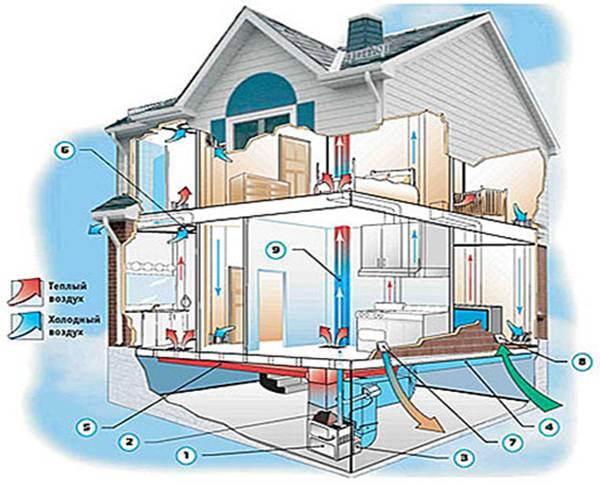

Individual climate in the house
Such a heating system is one of the most promising ways to heat private houses and cottages. Its main advantages are simplicity and reliability.
You will get acquainted with the features of this system and learn how to choose each of its elements correctly:
- gas air heaters
- galvanized iron air ducts
- special grilles
Manifold systems
Heating installation and manifold design can be done entirely by your own hands. If you are interested, you will find information on how to do this best, and why such systems are considered universal.
Everything for a private house or summer cottage
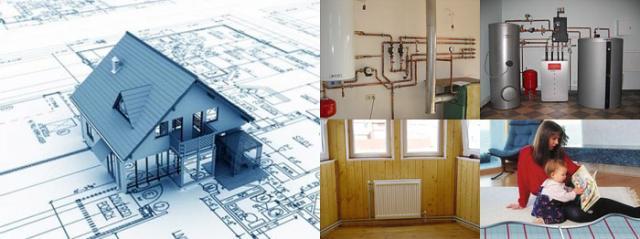

Which heating system to choose in a private house
If you need to install a heating system for a private house or summer cottage, we will advise you:
- what tasks should you pay attention to first of all
- what issues should only be solved by specialists
- what and how you can do it yourself
- how to check the correctness of each stage of work
If you want to heat a summer cottage, garage, temporary hut, greenhouse or other outbuildings, you will also learn about all the nuances of choosing how to heat them from the materials on the site.
Note! Water systems are not very popular for summer cottage heating, since they must work constantly. In such cases, it is better to use electric convectors.
And finally ...
Choosing a system for heating industrial premises
Heating of industrial premises is carried out using different types of systems, each of which requires detailed consideration. The most popular are centralized fluid or air systems, but local heaters can often be found.
The choice of the type of heating system is influenced by the following parameters:
- dimensions of the heated room;
- the amount of thermal energy required to comply with the temperature regime;
- ease of maintenance and availability of repair.
Each system has its pros and cons, and the choice will primarily depend on the correspondence of the functionality of the selected system with the requirements that apply to it. When choosing the type of system, it is necessary to calculate the heating system of an industrial building in order to have a clear understanding of how much heat is needed for the building.
